Resource Archive - 2023
SEARCH RESOURCES
You can also search by author name.
RESOURCE TYPES
RESOURCE TOPICS
RESOURCE PROJECTS
RESOURCE YEARS
In this resource guide, CESA recommends four previously published resources that elaborate on what state energy agencies should consider when conducting stakeholder outreach and engaging with community-based organizations.
CESA submitted comments to the Office of the Comptroller of the Currency, Board of Governors of the Federal Reserve System, and FDIC regarding proposed changes to the capitalization rules applicable to banks that engage in the tax equity market. The comments pertain to the impact of the proposed changes on state and federal clean energy goals.
Slides from a presentation by DOE for state energy agencies on writing an effective Community Benefit Plan, a required application component of all Inflation Reduction Act and Bipartisan Infrastructure Law funding opportunity announcements and loan applications.
This guide explains what information states should provide consumers on a state Home Energy Rebates webpage and highlights existing information by DOE, states, and other entities that provide models and useful resource information.
CESA compiled this database of over 400 community-oriented organizations with a focus on or interest in clean energy at the local level, especially for low-income and disadvantaged communities. The database especially emphasizes groups that seek to advance solar energy and environmental justice.
CESA compiled this database of over 400 community-oriented organizations with a focus on or interest in clean energy at the local level, especially for low-income and disadvantaged communities. The database especially emphasizes groups that seek to advance solar energy and environmental justice.
Manufactured homes, formerly referred to as mobile homes, comprise over 6 percent of America’s housing stock and represent an even larger share of housing for low- and moderate-income households. CESA has published an update to the “Solar for Manufactured Homes” report discussing potential funding opportunities through the Inflation Reduction Act.
This Low- and Moderate-Income (LMI) solar lease template consumer disclosure form offers an example that states and other stakeholders can use to ensure that LMI customers participating in state programs designed to broaden solar access receive the information they need to understand their solar contracts. This template is meant to be used as a starting point for states building solar lease (or PPA) programs.
This guide offers simple options for states to add Multifamily Affordable Housing (MFAH) solar and/or solar+storage to their application to the $7 billion Greenhouse Gas Reduction Fund (GGRF) Solar for All competition (Solar for All) and take advantage of the new tax credit features of the Inflation reduction Act.

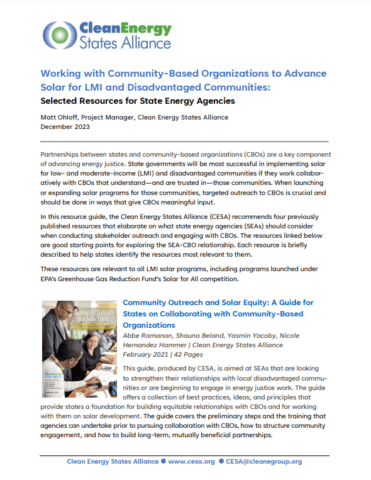
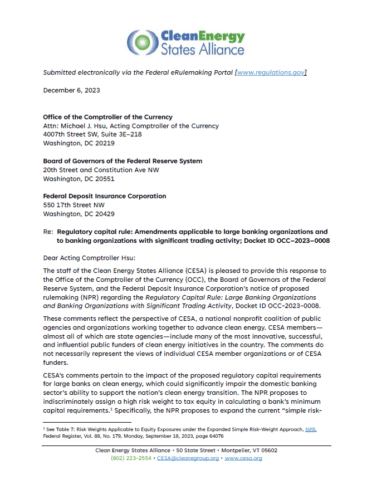
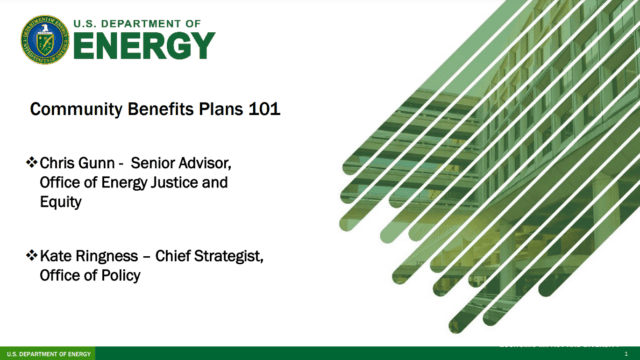
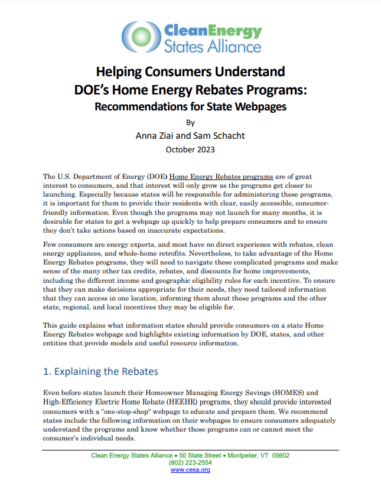
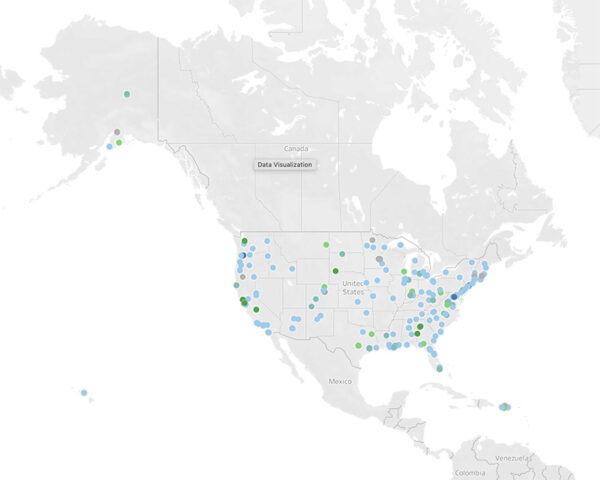
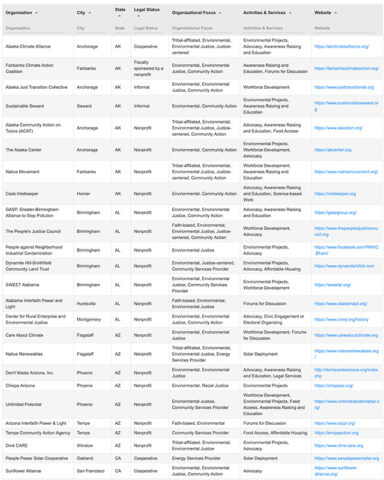
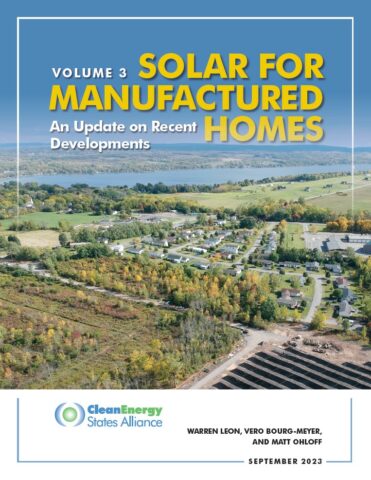
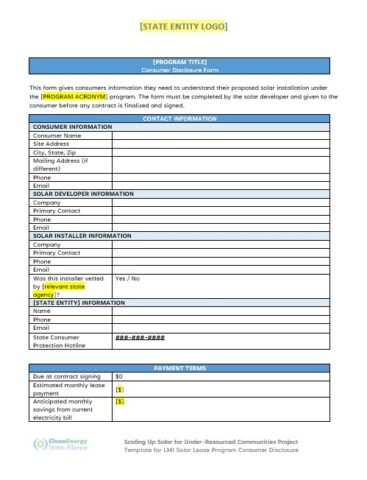
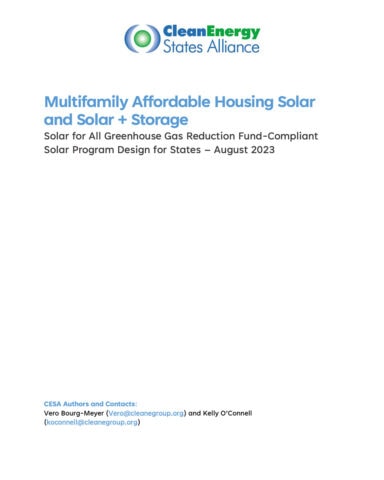
Comments Regarding the Development of the Maine Energy Storage Program
CESA submitted comments in response to the Maine Governor’s Energy Office Request for Information on Maine Energy Storage Program Development. CESA’s comments discussed opportunities to replace peaker power plants with energy storage, and answered many of the stakeholder input questions presented in the RFI.